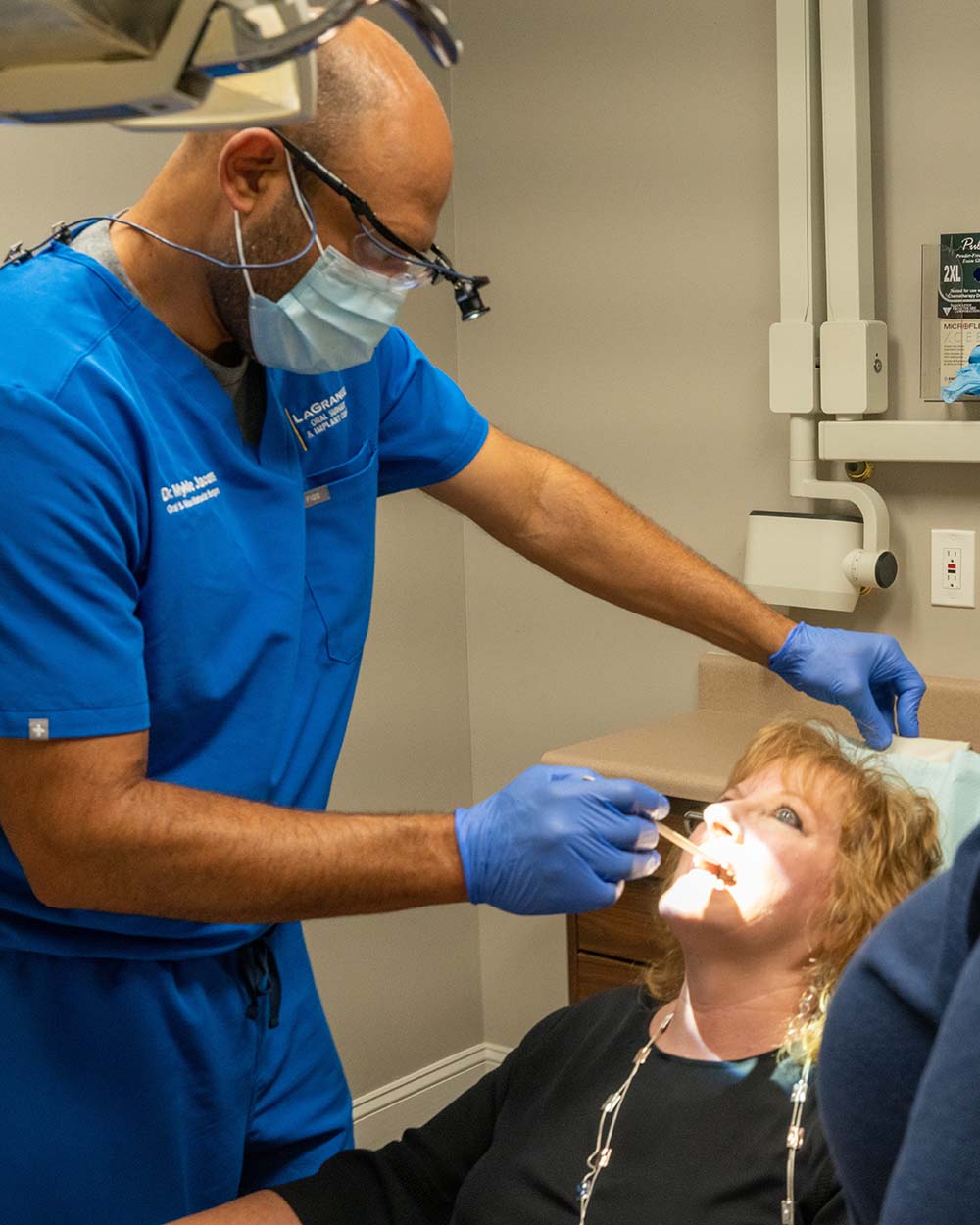Frenectomies
Freedom From Lip and Tongue Tie

Frenectomies
“Tongue tied” is a phrase that is usually used to describe someone who is having difficulty communicating clearly, but did you know that tongue tie and lip tie are actual medical conditions? They can have serious consequences that affect numerous aspects of a patient’s life, including their oral health, overall health, and quality of life. If you or a member of your family is suffering from lip tie or tongue tie, a frenectomy may be necessary.
Why choose LaGrange Oral Surgery & Implant Center?
We’ll examine your mouth and gather as much information as we can about your symptoms. Then, we’ll explain what treatments can be used to restore your oral health. In some cases, we might be able to treat the problem while leaving your dental implants where they are.
- Experienced Board-Certified Oral Surgeon
- Quick and Comfortable Treatment
- Procedure Available for Children and Adults

Want to learn morE?

What are lip and tongue tie?
A frenulum, sometimes called a frenum, is a piece of tissue that keeps two body parts from moving too far away from each other. There are a few different frenula in the mouth, including:
The lingual frenulum. This connects the tongue to the bottom of the mouth. Tongue tie occurs when the frenulum is so short or thick that it restricts the tongue’s movement.
The labial frenulum. This connects the upper lip to the gums above the upper teeth. Lip tie occurs when this frenulum seriously restrictions lip movements.
How are lip and tongue tie diagnosed?
Both lip tie and tongue tie can cause a variety of symptoms. Babies with these conditions may find it difficult to breastfeed, and mothers whose babies have this condition may suffer from sore nipples and related symptoms. Colic, restlessness, reflux symptoms, and poor weight gain are also common.
Lip and tongue tie in LaGrange are usually diagnosed and treated during infancy or childhood. Adults with lip tie or tongue tie may continue to experience a range of unpleasant symptoms, including:
- An aversion to certain food textures
- Unclear speech after consuming even a small amount of alcohol
- Oral hygiene challenges
- An increased risk of tooth decay and bad breath
- Habitual mouth breathing
- Difficulty kissing
- Misaligned teeth (due to holding the tongue in a forward position for too long)


